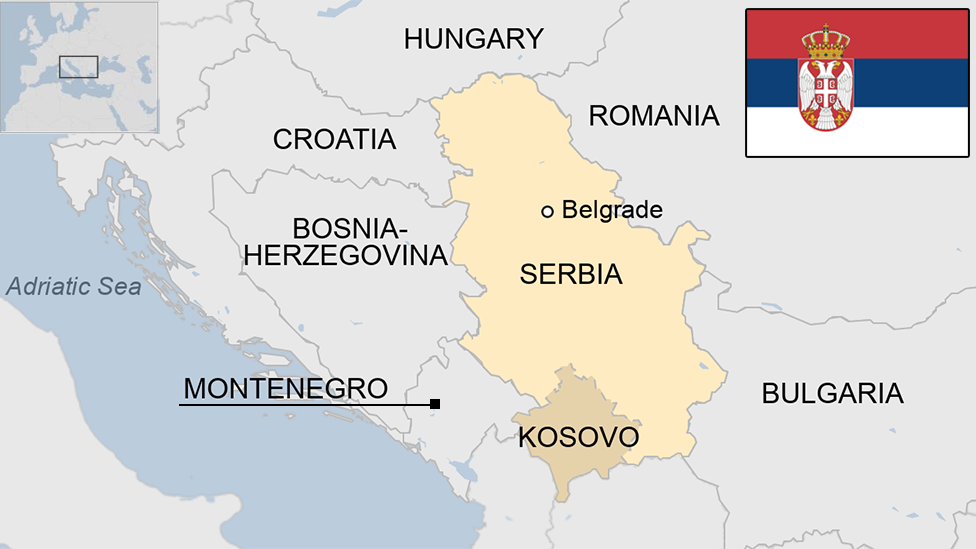EU Commission: 'Start Serbia membership talks'
- Published
- comments
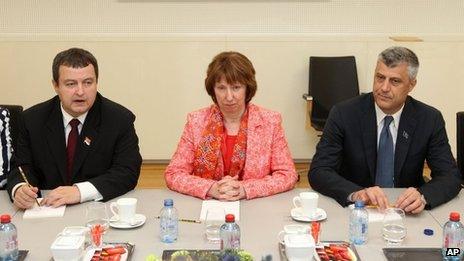
EU top diplomat Catherine Ashton helped broker the deal between Kosovo Prime Minister Hashim Thaci (R) and Serbian leader Ivica Dacic
The European Commission has recommended opening EU membership talks with Serbia, following Friday's landmark deal to normalise Serbia-Kosovo ties.
Serbia's government has approved the EU-brokered deal with its former province of Kosovo. Both Serbia and Kosovo want to join the EU.
There has been sporadic violence in Kosovo since the 1999 conflict.
Many countries recognise Kosovo as independent, but Serbia is among those, including Russia and China, who do not.
Five of the 27 EU countries do not recognise Kosovo: Spain, Greece, Romania, Slovakia and Cyprus.
Serbia insists that Friday's deal, granting a high degree of autonomy to Serb-majority areas in northern Kosovo, does not mean that it has recognised Kosovo's independence.
The Commission, which steers EU membership negotiations, said it "recommends that negotiations for accession to the European Union should be opened with Serbia". EU foreign ministers will consider the issue on Monday.
In a report , externalthe Commission said Serbia had "actively and constructively" engaged in dialogue with Kosovo and had improved its co-operation with Eulex, the EU rule-of-law mission in Kosovo.
In a separate report , externalthe Commission also recommended opening talks with Kosovo on reaching a Stabilisation and Association Agreement with the EU - a key step towards full EU accession negotiations.
The European Commission also proposed allowing Kosovo to participate in 22 EU programmes. The proposal requires approval from EU governments to go ahead.
Serb police chief
Kosovo's parliament in the capital Pristina, whose MPs are ethnically Albanian, accepted the 15-point deal with Serbia in a vote on Sunday.
Kosovo declared independence in 2008, but many of the ethnic Serb minority in Kosovo have refused to recognise the authority of its mainly ethnic Albanian government.
In medieval times Kosovo was the centre of the Serbian Empire, and Serbs regard it as the birthplace of their nation.
Under the new deal, Serbs in northern Kosovo will have their own Serb police commander and appeal court. That court will sit permanently in northern Mitrovica. The town is ethnically divided, with a Serb majority in northern Mitrovica and ethnic Albanians in the south.
The text, reported on the European Voice website,, external says the police in Serb-majority municipalities will be ethnic Serbs, but the force will remain part of the "one police force in Kosovo called the Kosovo Police".
Both sides also agreed not to block each other's efforts to seek EU membership.
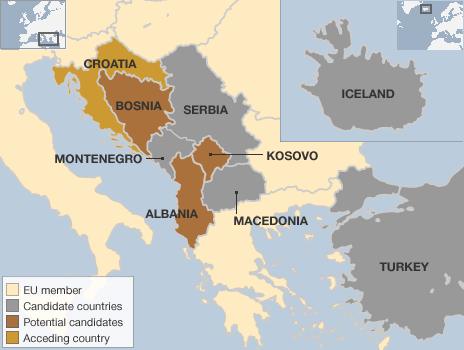
Local autonomy
Earlier on Monday the Serbian government accepted the "first accord on principles which regulate normalisation of relations, reached during the dialogue on Kosovo in Brussels," said an official statement, quoted by the AFP news agency.
Serbian Prime Minister Ivica Dacic had said that "if the government accepts the agreement, I expect Serbia to get a date to start membership talks with the European Union".
The deal says there will be legal recognition of a Serb-majority Association/Community in the north. It will have autonomy in key policy areas: economic development, education, health, urban and rural planning.
The deal was signed in Brussels on Friday by Mr Dacic and Kosovo Prime Minister Hashim Thaci, after long negotiations chaired by EU foreign policy chief Catherine Ashton.
In 2008 and 2011 Serbia captured Radovan Karadzic and Ratko Mladic, respectively - the two most wanted Bosnian Serb war crimes suspects. By handing them over to The Hague the Serb government removed a major obstacle to its EU accession. Before Friday's deal Kosovo had been the other major stumbling block.
Mr Thaci told the Kosovan parliament on Sunday that "Serbia has recognised the full sovereignty and territorial integrity of Kosovo".
Two ethnic Albanian opposition parties - the Democratic League of Kosovo, and Self-Determination - opposed the deal, calling it "treason" and "the foundation for a new Serbian republic" in the Balkans.
There was also a protest against the deal by Serbian nationalists in Belgrade on Sunday.
- Published17 February 2013
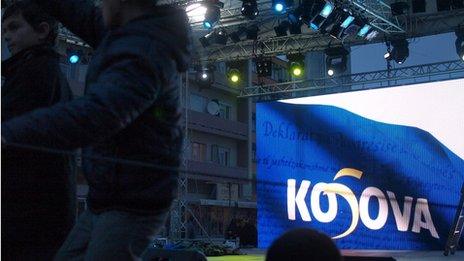
- Published2 September 2014
- Published28 June 2023
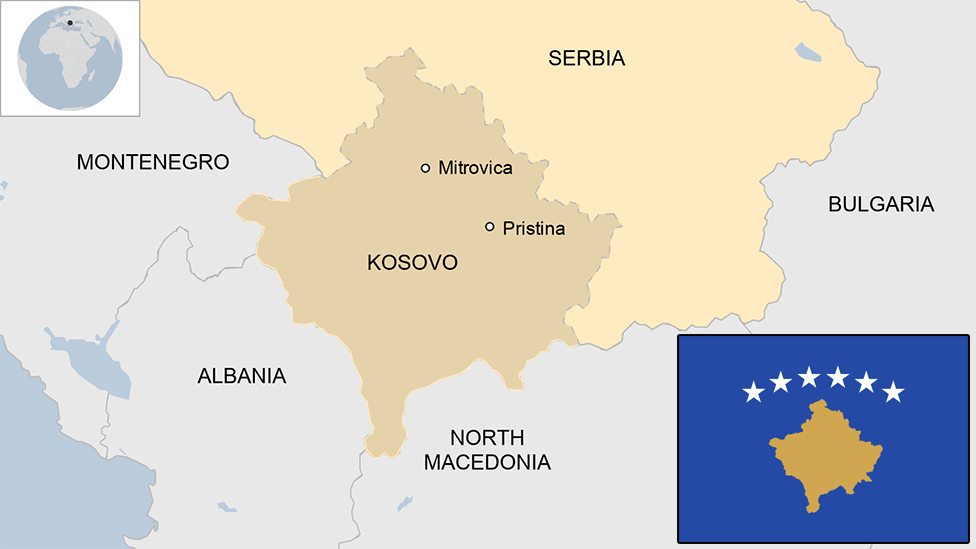
- Published28 January
